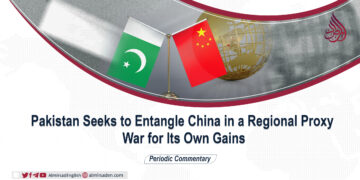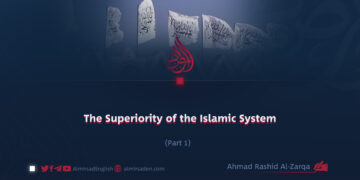The Independent Foreign Policy of the IEA: A New Chapter Begins
Author: Abdan Safi
The recent meeting between Afghanistan’s Foreign Minister and India’s Foreign Secretary Vikram Misri faced harsh negative propaganda on social media, reportedly linked to Pakistani intelligence agencies.
This reaction reflects a long-standing policy of undue interference in Afghanistan’s internal affairs, which has fostered distrust between the two nations. Pakistan’s traditional Afghan policy, centered on strategic depth and the imposition of a government aligned with its interests, has now completely failed. In contrast, the Islamic Emirate of Afghanistan (IEA) has embraced an independent and sovereign foreign policy, seeking balanced relations with all regional powers.
Over the past two decades, Pakistan’s interventions in Afghan affairs have not only harmed Afghanistan but have also presented significant challenges for Pakistan itself. Following the return of the Taliban to power, Islamabad anticipated Kabul to remain subservient. However, the Taliban government has prioritized national sovereignty.
Pakistan has made various attempts to exert pressure on Afghanistan—through Durand Line restrictions, diplomatic statements, and more recently, airstrikes—but these efforts have backfired. Anti-Pakistan sentiments have intensified within Afghanistan, while the Taliban have made it clear that they will make decisions solely based on national interests, without yielding to external pressure.
Pakistan’s policy has proven to be counterproductive, with its interference in Afghanistan’s internal affairs leading to increased isolation. The recent airstrikes serve as a clear example—not only do they infringe upon international law, but they have also further strained bilateral relations. If Islamabad does not reassess its approach, it will confront even greater diplomatic challenges in the future.
The Islamic Emirate of Afghanistan is advancing its foreign policy in an independent and balanced direction. The Taliban have made it clear that they will not depend on any single country but will instead seek equal relations with all neighboring states.
The meeting between the Afghan Foreign Minister and India’s Foreign Secretary is a continuation of this policy. The Taliban have opted to maintain pragmatic relations with India, recognizing that Afghanistan requires economic, trade, and diplomatic cooperation with all nations. India is a significant regional power and has historically contributed to Afghanistan’s development projects.
The Taliban government acknowledges that limiting relations to a single country is unwise and that nurturing diplomatic ties with all powers is essential for long-term stability.
This approach is not limited to India. The Taliban have pursued similar engagements with Central Asian states, Iran, China, and Russia. Trade relations with Uzbekistan and Turkmenistan are expanding, while economic cooperation with Iran and China is also increasing. Strengthening these ties demonstrates that Afghanistan is moving beyond international isolation and solidifying its position as a sovereign state.
Pakistan has long viewed Afghanistan as a subordinate state, yet the Taliban government has emphasized that it will not compromise on its sovereignty. The recent airstrikes have intensified mistrust between the two nations, and if this pattern persists, relations may deteriorate further.
Pakistan must recognize that cultivating friendly ties with Afghanistan can only stem from mutual respect and equality. If Islamabad persists with its outdated policies, it risks further isolating itself not just from Afghanistan but from other regional powers as well. The Taliban’s foreign policy is explicit: they strive for equal and respectful relations with all countries. Should Pakistan adopt a similar principle, it could pave the way for enhanced bilateral ties between the two neighboring nations.
















































